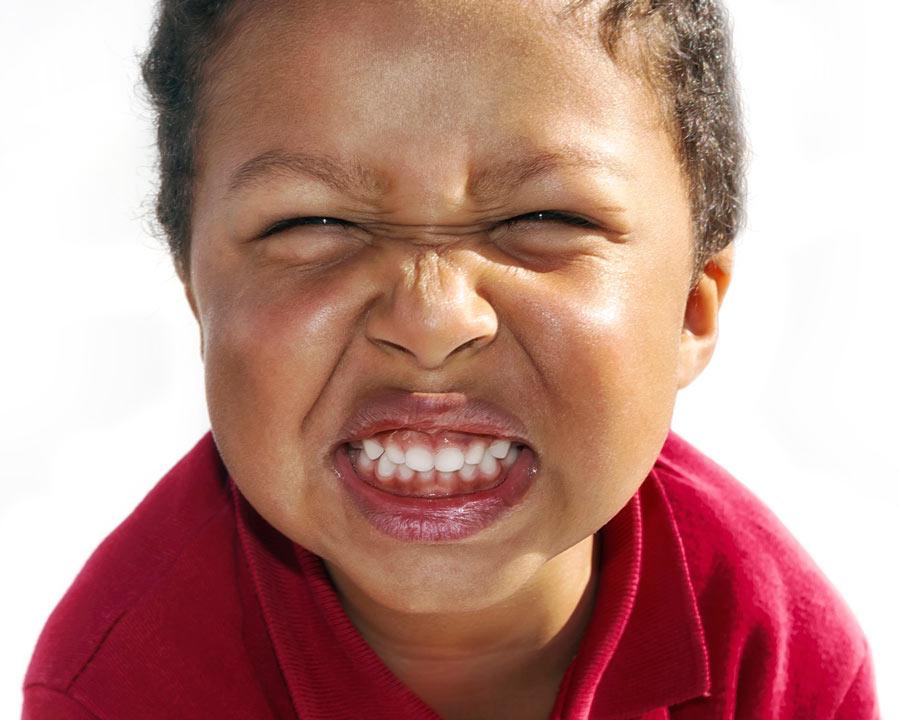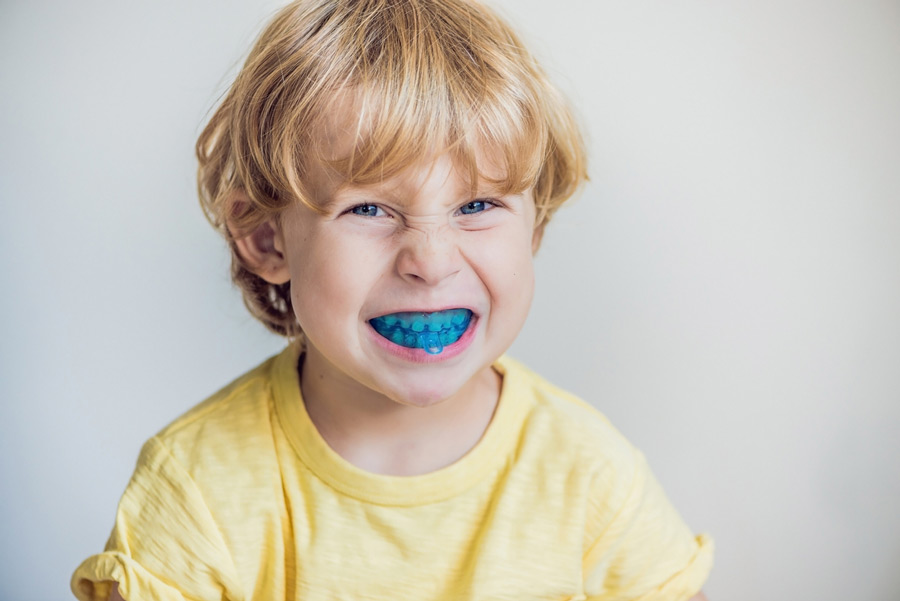Teeth Grinding in Children: What to Look for and How to Treat it
 For many parents, walking over to your child’s bed in the middle of the night to watch as they sleep is something of joy. As you take in the sounds of them breathing in and out gently in the night the last thing you want to hear is a screeching, gritting noise.
For many parents, walking over to your child’s bed in the middle of the night to watch as they sleep is something of joy. As you take in the sounds of them breathing in and out gently in the night the last thing you want to hear is a screeching, gritting noise.
But alas, that is the story for many parents with kids under the age of 11. The cause of this noise is simply teeth grinding,and it’s known medically as ‘bruxism.’ It’s a very regular occurrence in children under the age of 11,and some doctors even consider it normal behavior in children.
Causes of Bruxism
Teeth grinding in children can be caused by a wide variety of reasons, including the following:
- Pain
- Anxiety
- Hyperactivity
- Cerebral palsy
- Reaction to medication
How Common is Bruxism?
It has been found that about 2 to 3 out of 10 children suffer from bruxism, so you are not alone. In fact, some researchers believe this number is higher considering how bruxism sometimes goes unnoticed by parents.
Research has also shown that most children end up outgrowing bruxism.
How to Diagnose Bruxism
A way of not diagnosing bruxism is by asking your child if they grind their teeth. This is because many children don’t even realize what they’re doing.
This makes diagnosing bruxism in children a bit tricky but not impossible. Here are a few ways of finding out if your child is grinding his or her teeth at night:
- Monitor them while they are sleeping:this is a good way to know for sure if your child suffers from bruxism. Check on them at night to see if they’re making grinding noises while they’re asleep. If your child sleeps with a sibling in the room, try asking that child to keep an ear open and report back to you with the findings.
- Look out for pain in the jaw: keep track of each time your child mentions pain when eating or a sore jaw in general as these could also be signs of bruxism.
- Check your child’s teeth: regularly check out your child’s teeth. If you notice the becoming flat or the teeth all begin to appear to be the same length, then these could also be symptoms of bruxism as a result of all the grinding happening at night.
- Talk to your child about stress triggers: during your regular chat sessions with your child, take the time to find out about their well-being. Steer the conversation toward finding out if your child is worried or upset about something. Most of the time, parents find out their child is suffering from one form of stress or the other,and that is what is causing the child to seek out grinding as a way to alleviate their stress.
Apart from those above, there are other things to factor into your questioning when trying to determine whether or not your child suffers from teeth grinding. Genetics is one of these factors. Teeth grinding is inheritable which means that genetics may also have a key role to play in it happening to your child. If you or anyof your family members have suffered from bruxism in the past, then your child is more likely also to develop the condition.
A good majority of the population displaysa form of bruxism behavior,and fetuses are not exempt from this. It has been found that some fetuses show bruxing behavior while in the uterus.
The Numerous Effects of Bruxism on Children

- It leads to the destruction of teeth enamel: teeth grinding done over a period of time can potentially lead to the wear of the enamel of your child’s teeth. When the enamel wears off, the tooth then exposes the softer dentine,and this makes it faster and easier for the rest of the tooth to be ground away as well
- It prevents a good’s night rest: doctors have classified bruxism as a sleep disorder because it wakes up people in the middle of the night.
- Behavioral issues: a child suffering from bruxism is not sleeping well, and as a result, can also suffer from behavioral issues like depression.
- Pain, headaches and a dip in quality of life: bruxism causes headaches, earaches, jawaches, and damage to the teeth.
Bruxism is a frequent complaint among children who breathe through their mouth as well as those who suffer from adenotonsillarhy pertrophy, obstructive sleep apnea, dental occlusions,and psychological problems.
It is also normal for bruxism to go undetected because most sufferers show or feel no pain. In most cases, the annoying noise that ensues is what gives it away.
How to Treat Bruxism
In treating bruxism, the first step is to check the teeth to ensure the grinding is not causing any underlying damage. If the grinding seems to be harmless, you can then stop worrying as much and hope that your child outgrows the bruxism on his or her own.
The next step is to consider what triggers the teeth grinding. It can be caused by anxiety, stress, genotypes, and more. However, depending on the trigger, it may be wiser to deal with the underlying trigger instead of only working with more temporary measures.
To ensure your child’s safety, a trip to the dentist is in order. While you are there, the dentist will probably prescribe a custom mouth night guard for your child. This oral device works like the protective mouth guards worn by athletes, but this is worn only at night and is much more advanced.
Mouth guards for children are equipped with a lot of customized features for your child’s teeth. Wearing one at night can go a long way to help protect your child’s teeth from the damage that comes with bruxism.
Medically Fact-Checked & Written by Our Dental Editorial Team
You can read more about our editorial guidelines by clicking this link and learn more about the Emergency Dentists USA editorial team here.

